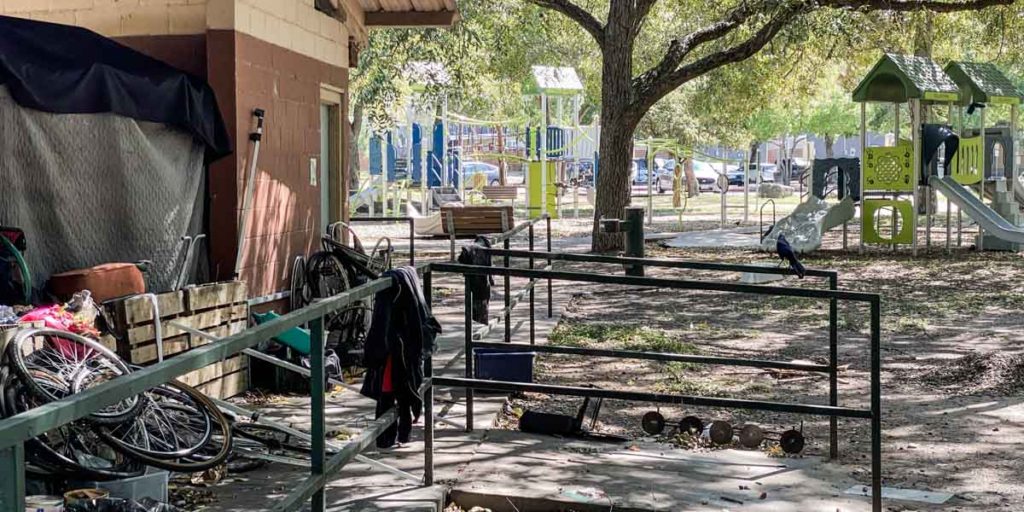
It shouldn’t come as a surprise that Austin voters shot down City Council’s camp-anywhere policy. After two years of out-of-control disorder brought by Austin’s decision to allow people to camp anywhere (except City Hall and parks like the above Gillis Park), Austinites had enough. But given Council’s ongoing capitulation and captivity to insular, far-left groups (1:09:00 in the video is a good example), the Proposition B vote clearly revealed the chasm between what council members believe the public thinks and what the public actually thinks.
Now that Prop B has passed, calls are mounting for sensible action by the Council. People are also asking what the role of the Austin Police Department in dealing with the camping crisis will be.
To be clear, APD officers do not have a beef with poverty. No officer comes to work wanting to hammer homeless people whose root issues often stem from personal tragedy, mental illness, and substance abuse.
Prior to the repeal of the camping ban, officers’ concern was maintaining some semblance of order in what was clearly a no-win situation. The officers’ conversations with the homeless were not “sorry, you can’t exist in Austin,” but rather “please don’t take a deuce in front of that business’ entryway door,” “don’t leave used syringes on the playground,” “don’t punch car windows when people don’t give you money,” “don’t yell at outdoor diners while they eat,” “don’t follow tourists several blocks to their cars in the dark,” “don’t masturbate in front of people,” etc.
It’s not “systemic racism” or any validation of strawmen slogans like “homes not handcuffs” for citizens in society to ask for order in public spaces. Telling grown adults that they cannot trash kids’ playgrounds is not an example of police oppression. Neither is telling people that they cannot throw garbage into Lady Bird Lake and trash hike and bike trails.
So what is the first thing Austin City Council needs to do following the Proposition B vote? Councilmember Kathy Tovo checked that box today by proposing a resolution to identify parcels of public land where permanent encampments can be made.
Once that is done, social workers can go talk to the homeless people in areas where camping is prohibited (i.e. Lady Bird Lake, playgrounds, etc), help them move their possessions to the approved camping sites, and get them connected with resources and housing to help them succeed. That’s a reasonable plan.
And after social workers have moved all of the homeless people who are willing to move to approved camping areas, adequate efforts at gaining voluntary compliance have been exhausted, APD can assist with moving the holdouts and restoring safety, tranquility, and access to public places.
